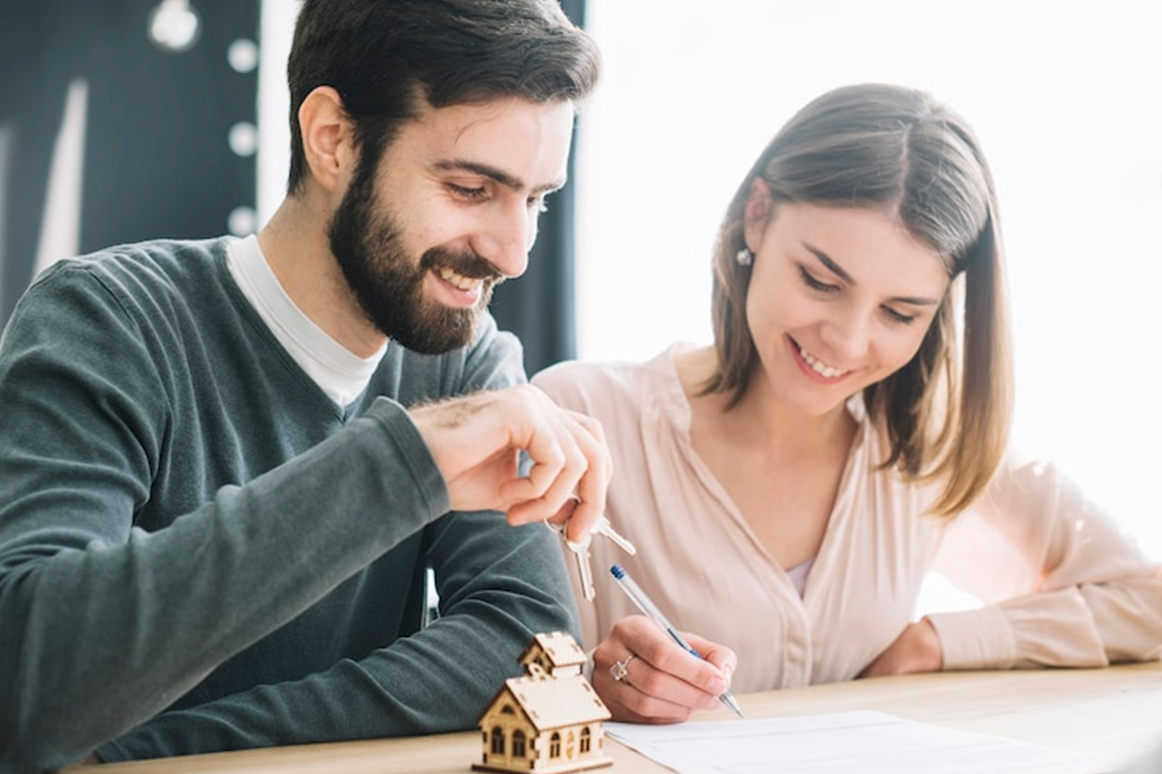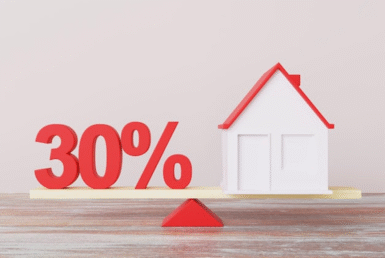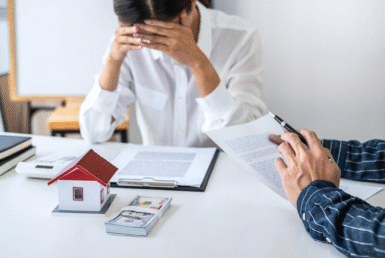7 Things to Consider When Buying a Larger Home

Thinking about buying a larger home? That’s exciting! Maybe your family is growing, your lifestyle is changing, or you’ve just outgrown your current space. Whatever your reason, this step can feel like a huge breath of fresh air literally and figuratively. But before you start browsing listings or mentally decorating your future dream home, there are a few important things to keep in mind.
Let’s talk like friends here’s what you should think about when you’re making the leap into more square footage.
1. Do You Really Need More Space? Or Just Better Use of It?
This might sound a bit unexpected, but before you fully commit to buying a larger home, ask yourself: Do I need more space, or do I need to use my space better?
Sometimes, a clever renovation, some decluttering, or better organization can make a home feel twice as big. Seriously, you’d be surprised what a few smart storage hacks can do.
But if you’ve already maxed out your options, if you’ve got bikes in the living room, a baby crib in the office, and nowhere to host family without playing furniture Tetris it’s probably time to level up. Just make sure you’re doing it for the right reasons and not because your Instagram feed makes you feel like your home is “too small.” Bigger doesn’t always mean better unless it genuinely supports your lifestyle.
2. Your Future Self Will Thank You: Think Long-Term
Okay, here’s where we look into the crystal ball. Don’t just buy a house for your now, buy it for your next five to ten years.
Are you planning to have more kids? Starting a business from home? Taking care of aging parents down the line? These future plans will shape what kind of space you need. If you’re buying a larger home now, it should fit your future lifestyle, not just your current one.
Also, think about the maintenance. More space = more stuff to clean, heat, cool, repair, and furnish. Be honest with yourself about how much time, money, and energy you’re really willing to dedicate to upkeep.
Bonus tip: Walk through the home and picture an average week, not just the glamorous parts. Where will your kids drop their backpacks? Will you actually use that extra living room, or will it become “the fancy room no one goes into”?
3. The Budget Isn’t Just the Price Tag
When people think about buying a larger home, they usually focus on the listing price. But that’s just one slice of the financial pie. Let’s talk about all the other things that add up.
- Utilities: A bigger home means higher heating, cooling, and electric bills.
- Furnishing: More rooms = more furniture. That empty guest bedroom isn’t going to furnish itself.
- Property taxes: They can go up significantly with a bigger or more expensive home.
- Maintenance: Think lawn care, roof repairs, plumbing-everything costs more with more square footage.
- Insurance: Larger homes usually mean higher premiums.
Make sure your mortgage pre-approval doesn’t trick you into thinking you can afford more than you really can. Your lender looks at income vs. debt, but they don’t know you’re planning a nursery or want to travel twice a year. You do. So stick to a budget that lets you live, not just pay bills.
4. Location Still Rules—Even with a Bigger House
You’ve probably heard it a million times: location, location, location. And guess what? It still applies when you’re buying a larger home.
It’s easy to fall in love with a spacious house that checks all your boxes but if it’s in the middle of nowhere or has a 90-minute commute, that charm can fade fast.
Here are some location questions to ask yourself:
- How long will my commute be (and is that realistic every day)?
- Are there good schools nearby (even if you don’t have kids now)?
- Is the area safe? Walkable? Friendly?
- What’s the resale value in this neighborhood?
- Are there parks, restaurants, or shops I’d actually use?
Don’t sacrifice lifestyle for square footage. A well-located smaller home often beats a big home in the wrong spot. You want the whole package, not just four bedrooms and a bonus room.
5. Layout Matters More Than Square Footage
Here’s the thing: you can have a 3,500 sq ft home that feels cramped or a 2,000 sq ft one that feels open and perfect. It all comes down to layout.
When you’re buying a larger home, don’t just get wooed by the numbers. Walk through the house and pay attention to how the space flows. Are the bedrooms far away from the kitchen? Is the kitchen open to the living room? Is there a logical layout, or does it feel choppy and awkward?
Think about:
- Natural light: More windows = happier you.
- Storage: Are closets big enough? Is there a pantry or linen closet?
- Privacy: Can the kids be noisy in their rooms while you take a Zoom call in peace?
- Use of rooms: Do you actually need a formal dining room, or would an eat-in kitchen be more useful?
You’re not just buying more space, you’re buying how that space feels, works, and lives.
6. Upgrades, Repairs, and Renovations-Oh My!
That dreamy big house you found? It might come with a long to-do list. When buying a larger home, it’s easy to get distracted by the potential but potential costs money and time.
Before you buy, do a solid inspection. That includes the basics like the roof, HVAC, foundation, and plumbing. Don’t forget about Sanitair especially if the air systems are older. A clean, efficient air system can really impact your comfort and health.
And if the home needs cosmetic upgrades, ask yourself:
- Can I live with this for a while, or will it drive me nuts?
- Do I have the budget and energy for a renovation soon?
- Am I buying this house because of the potential, or in spite of its flaws?
Larger homes tend to come with higher costs for any kind of repair or update. Think double the paint, more flooring, extra windows, and bigger appliances. So be honest with yourself about what you’re getting into.
7. The Emotional Side: What Does “Bigger” Mean to You?
We don’t talk about this enough, but buying a home isn’t just a financial decision it’s an emotional one too.
Sometimes, people think that buying a larger home will make them feel more successful, more grown-up, or just happier. But those feelings aren’t guaranteed. In fact, sometimes more houses means more stress, more debt, and more stuff to manage.
Here are a few emotional check-ins to consider:
- Am I doing this for me, or to impress someone?
- Will this house support the life I want to live?
- Will a bigger home actually improve my day-to-day life or just make it look prettier?
Sometimes, a bigger home does bring peace, space, and comfort. But only if it truly fits your lifestyle, your budget, and your heart.
Quick Recap: What to Ask Yourself
Before you sign on the dotted line, go through this little checklist:
✅ Am I upgrading for the right reasons?
✅ Can I afford the ongoing costs, not just the mortgage?
✅ Is the layout as good as the size?
✅ Will this work for me long-term?
✅ Is the location going to support my daily life?
✅ Are any major repairs or upgrades going to break my budget or my spirit?
✅ Does this home align with the life I want to live?
If you’re nodding your head to most of those, congrats you’re well on your way to making a smart decision.
Final Thoughts
Buying a larger home is a huge decision and it should be exciting! But excitement doesn’t mean rushing in. If you slow down, ask the right questions, and really think about your lifestyle and goals, you’ll end up with a home that doesn’t just look good on paper but feels right in your soul.
So go ahead—dream big, plan smart, and don’t forget to enjoy the process. Whether you’re upgrading for your growing family, starting a new chapter, or finally creating the space you’ve always wanted, remember: it’s not just about square footage. It’s about living a life that fits you.
Article provided by: Katherine Langford




Join The Discussion